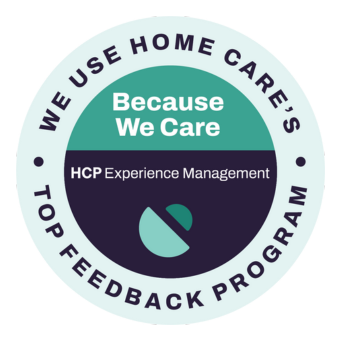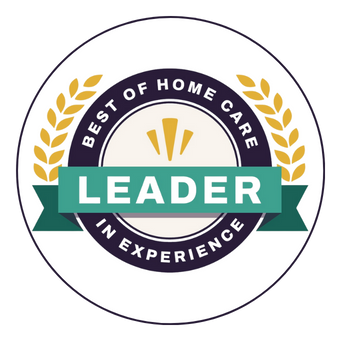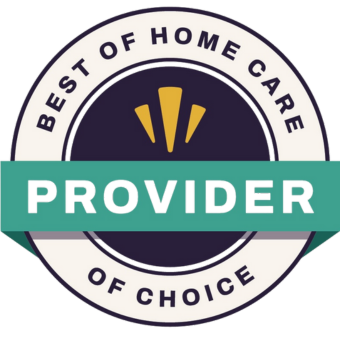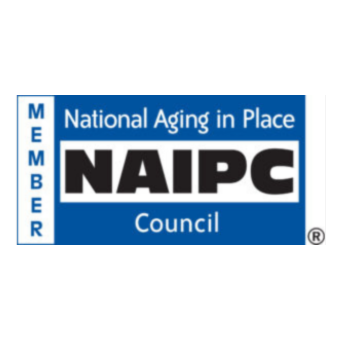As individuals in Raleigh age, connecting with others becomes increasingly important for maintaining their happiness and quality of life. For one reason or another, many seniors don’t get the socialization they need, which can significantly impact their physical, mental, and emotional health. Read on to explore the link between socialization and senior health, as well as companion care tips and strategies for family caregivers who want to keep aging loved ones active and engaged.
Seniors in Raleigh Face These Socialization Challenges
Retirement often impacts a senior’s ability to socialize, as they no longer have the daily interactions provided by the workplace. Many seniors struggle with negative emotions, including loneliness, anxiety, and depression, once they’ve retired.
Additional reasons why older adults don’t socialize enough include:
- Limited mobility
- Lack of transportation
- Loss of a spouse or partner
- Chronic health conditions
- Technological barriers
- Financial constraints
- Cognitive decline
- Language barriers
- Hearing or vision loss
- Social stigmas associated with aging
- Cultural or generational differences
Why is Socialization Vital for Senior Health?
The importance of socialization for seniors cannot be overstated, as it has been linked to numerous health benefits. Human interaction helps seniors maintain their physical health by encouraging regular physical activity, reducing the risk of chronic diseases, and promoting better sleep patterns. Social engagement is also essential for maintaining cognitive function and mental well-being, reducing a senior’s likelihood of experiencing cognitive decline, anxiety, and depression.
Additionally, social interactions provide emotional support that promotes a sense of belonging and purpose, contributing factors to senior’s quality of life. Based on available scientific research, seniors who socialize regularly tend to be happier, healthier and even live longer than those who don’t.
Keeping Aging Loved Ones Engaged: Socialization Tips for Family Caregivers
Family caregivers play a vital role in helping seniors stay socially connected. Here are some ways to help your aging loved one reenergize their social life:
Group Activities
Convincing your loved one to participate in group activities will help combat feelings of loneliness and isolation. Look for fitness centers, community centers, or clubs that offer senior-friendly social activities, including exercise classes, art workshops, book clubs, or group outings. Joining these groups is a great way for seniors to meet new people, make friends, and engage in meaningful social interactions.
Intergenerational Activities
Seniors are a valuable source of wisdom and knowledge. Encourage yours to share their life experiences with younger family members or through intergenerational programs in the community. Taking advantage of intergenerational opportunities can offer seniors a sense of purpose, companionship, and the chance to share what they’ve learned with younger generations.
Technology
In today’s digital age, technology can be a powerful tool for seniors to stay connected with family and friends. Show your loved one how to set up video calls, use social media to stay in touch, or participate in online communities and forums tailored to seniors. Technology can help bridge geographical distances, facilitate communication, and provide seniors with a sense of connection and belonging.
Social Visits and Outings
Spending quality time with seniors is essential for maintaining their health and well-being. Scheduling regular visits, outings, or day trips with aging loved ones is a great way to provide them with the companionship and support they need. Simple activities like going for a walk, sharing a meal, or watching a movie together can create numerous opportunities for meaningful conversations and shared experiences.
Professional Assistance
Busy schedules and geographic barriers often make it difficult for family caregivers to provide aging loved ones with the socialization they need. When placed in that situation, families may rely on resources like adult day care, community volunteers that work with the aging, or professional home care to keep seniors socially engaged.
Professional In-Home Companion Care: Bridging the Socialization Gap
For seniors struggling to maintain social connections, professional in-home companion care can be a valuable resource in bridging the socialization gap. When provided by a reputable home care agency, companion care services offer seniors personalized support and companionship, tailored to their individual needs and preferences. In addition to socialization, companion caregivers can provide daily living assistance, transportation, medication supervision, and numerous other services.
The senior health benefits of professional in-home companion care include:
Builds Meaningful Relationships
One of the key benefits of companion care is the opportunity for seniors to build and maintain meaningful relationships with their caregivers, greatly minimizing feelings of isolation and loneliness. Interacting regularly with a companion caregiver can help seniors stay mentally and emotionally stimulated, enhancing their cognitive health and mental well-being. Additionally, companion caregivers can provide valuable support that helps seniors navigate social situations, build confidence, and maintain a sense of independence.
Holistic Care Approach
In addition to the socialization benefits, a companion caregiver can also support an aging-in-place senior’s independence and self-reliance by providing them with meal preparation, medication supervision, and personal care assistance. While addressing the socialization challenges seniors face, companion care promotes a holistic approach to senior health and well-being.
Promotes Emotional Well-being
Companion care services can be customized to meet a senior’s unique needs and preferences, whether they require assistance with light housekeeping, grocery shopping, medication management, or something else. By fostering meaningful relationships between seniors and companion caregivers, these services create a supportive and nurturing environment that promotes social engagement and emotional well-being.
Enhances Physical Health
In addition to the social and emotional benefits, companion care can also benefit a senior’s physical health. Participating in group activities, such as Yoga classes or walking clubs, can help seniors improve their mobility, breathing, and flexibility. By encouraging seniors to stay active, engaged, and connected to their communities, companion care services contribute to a higher quality of life and increased longevity for older adults.
Relieves Family Caregivers
Finally, companion care allows family caregivers to take a well-deserved break, or respite, by ensuring their loved ones receive the socialization and support they need. Family caregivers can have peace of mind knowing their senior is in the hands of trained and compassionate professionals who prioritize their loved one’s safety, comfort, and happiness.
In conclusion, the link between socialization and senior health is well-established, with social engagement being a key determinant for an older adult’s health, happiness, and longevity. Family caregivers play a vital role in promoting senior socialization and encouraging aging loved ones to stay socially connected with others. When needed, professional in-home companion caregivers can help seniors bridge the socialization gap, empowering them to lead more active and fulfilling lives in the safety and comfort of their private residences.
Dignified In-Home Companion Care for Seniors in Raleigh
Helping aging loved ones get the socialization they need isn’t easy when you’re busy or live far away. At HomeChoice Home Care Solutions in Raleigh, our companion care services prioritize senior health. As a fully licensed and accredited home care provider, our highly trained professionals can provide the companionship your loved one deserves. While serving as an extended family in the home, our caregivers can perform various duties, including Companionship Care, Personal Care, and Respite Care.
While assisting clients in Raleigh, Durham, Wake County, Johnston County, Wake Forest, Chapel Hill, and North Carolina, our agency’s focus is maintaining your loved one’s quality of life, along with their dignity, self-esteem, and independence. For your added convenience, all our in-home services can be individually personalized into an affordable package when and where you need them! Please visit HomeChoice Home Care Solutions now to learn more about how we promote senior socialization or schedule a FREE consultation for someone in our service area.












